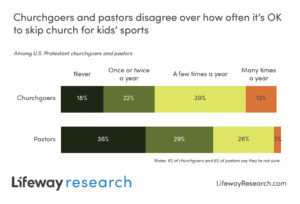
As William Wilberforce, the 18th and 19th century member of Parliament, fought for the abolition of slavery, he also led a “manners” crusade in England. He saw a direct correlation in the public arena between the way citizens treated and spoke to each other, including toward those trapped in slavery, and what shaped their personal attitude.
But a higher standard must be evident in those professing to know Christ. Wilberforce expressed this standard in a letter sent to one of his sons upon heading to Oxford. “Don’t be satisfied with being hopeful, still less with being merely ‘not vicious,’” he wrote. “Strive to be a Christian, in the highest sense of the term.” As one knowing the forcefulness of political power, who had witnessed cutthroat tactics among so-called churchmen supporting slavery, he reminded his son to refuse to think being “not vicious” adequately expressed Christian character.
One wonders what Wilberforce might say if he witnessed interactions in the present Christian community.
Caustic vocabulary, deafening volume, and incendiary comments pervade church gatherings, members’ meetings, Christians’ social media content, and Christians in the public square. Civility, the act of demonstrating regard, consideration, and politeness toward others, should be expected in the public square, but far more so in the community of the saints. Yet, the rise in media and political incivility appears to have given license for treating one another with invectives and shrill judgment. But is that the way Jesus modeled kingdom life for His people?
A biblical term might help to frame civility for Christians. Jesus said of Himself, “For I am gentle and humble in heart” (Matthew 11:29). Gentleness captures civility in the heart of our Lord, who “will not quarrel or cry aloud, nor will anyone hear his voice in the streets; a bruised reed he will not break, and a smoldering wick he will not quench, until he brings justice to victory” (Matthew 12:19–20, quoting Isaiah 42:1–2).
This same gentleness (civility), by the work of the Holy Spirit regenerating and implanting Jesus’ life in a new creature in Christ, works out of the Christian as an aspect of the fruit of the Spirit (Galatians 5:22–23). In gentleness, all the strength and energy of personality and intelligence is brought to bow before the lordship of Jesus. Without gentleness, we fail to look like Christ. This truth led 19th century pastor Gardiner Spring to explain, “A man of an ungovernable and ungoverned spirit bears little resemblance to the character of Christ.”
Gentleness bears testimony of a life under the control of the Holy Spirit. It’s the same humble and kind character of Jesus affecting disposition and conversation that pastors must teach and model in the local church. Unlike Wilberforce, we need not go on a manners crusade. Nor are we trying to squeeze the congregation into something they’re incapable of being. Rather, by the work of the gospel, we’re helping the church to understand what it means to live as kingdom citizens. How can pastors teach civility to the church? Let’s think about five layers for teaching civility in the church.
1. Expect civility as evidence of spiritual maturity.
As a regular course of biblical exposition and instruction in small group studies, we need to aim the congregation toward spiritual maturity. Growth in grace and knowledge of Jesus should be the norm for local churches. God has provided the means for growth through the preaching and teaching of holy Scripture, gathered worship, fellowship of the saints, personal and corporate prayer, and meeting at the Lord’s Table. Each means of grace raises the church’s eyes to see what it looks like to experience life in Christ, to see the power of the cross and resurrection in daily life, and to incline the affections to love and follow Jesus as we worship. Do these central, essential aspects of the corporate gathering help your congregation to mature in Christ? Do we raise the expectations of living in gentleness toward one another as a matter of those who are “created after the likeness of God in true righteousness and holiness”? (Ephesians 4:24).
2. Teach civility as a matter of sanctification.
Every gathering of the church should aim toward deepening the experience of sanctification — that is, being a people set apart unto the Lord. While the saving work of Jesus assures our sanctification, the continued work of the Holy Spirit convicting, illumining, leading, filling, bearing witness, and giving assurance brings Christians into intense consciousness of living life in Christ.
Sanctification means we belong to Jesus and Jesus only. Do we pointedly teach on sanctification to help loose our people from the incivility evident in the world? When Paul told Timothy to “preach the word,” he insisted on preaching in the face of Christ with a word that reproves, rebukes, and exhorts with patience and instruction (2 Timothy 4:1–2). As we do the same, we press sanctification so that our people understand what Jesus meant when He prayed, “Sanctify them in the truth; your word is truth” (John 17:17).
3. Model civility as an example to the flock .
Peter put “being examples to the flock” as one of the primary responsibilities charged to those shepherding the church (1 Peter 5:3). What we say and how we say what we say — in pulpit, online, and in private conversations — impacts the thinking of our congregation. When fiery words flash across the internet, we mustn’t be the perpetrators. When voices elevate in members’ meetings, we’re to temper them with gentleness and moderation.
When verbally attacked, we’re not to respond in like kind. Pastoral examples leave far more impression than political hacks thrashing all their opponents. Pastors erode pulpit power by careless conversations and brusque internet posts. We’re to give the church a better idea of what Jesus looks like as they watch our actions, observe our attitudes, read our social media, and listen to our speech.
4. Build civility as an expectation in community.
Pastors affect the congregation’s tone and temper by example but also through praying and laboring to see a Christlike DNA formed in the church. That won’t happen quickly. It’s faithfully opening the Word to the church, expounding it from a Christ-centered hermeneutic, and pastorally applying truth for the details of life in the points of the sermon. Brothers, unless we show our people the difference that Christ-centered application to daily life makes, then we’re left to manipulating and legislating behavior with our people. Instead, we’re entrusted with applying the gospel to the whole of life. The gospel absorbed and applied affects civility.
When Peter unpacked how the church was to live in the variety of relationships (public, slavery, home, and church spheres, cf. 1 Peter 2:18–3:12), he declared the only means for living the Christ-life: “He himself bore our sins in his body on the tree, that we might die to sin and live to righteousness” (1 Peter 2:24). As we show the power of the gospel, turning the diamond of Christ’s death and resurrection to reflect its piercing light into every facet of life, we’ll build an understanding in the church of how to live as Christ’s followers. Civility will be natural as the gentleness of Jesus pervades the church.
4. Admonish civility as a means of Gospel witness.
We need the reminder in our weekly gatherings that our testimony either beautifies or denigrates the gospel of Jesus Christ. Peter tells the church, “But in your hearts honor Christ the Lord as holy, always being prepared to make a defense to anyone who asks you for a reason for the hope that is in you; yet do it with gentleness and respect” (1 Peter 3:15). If we fail to live “with gentleness and respect” — that’s civility — then no one will ask us about “a reason for the hope that is in you.”
We have no gospel witness if we’re not living out the gospel. Incivility in the church and public sphere erodes evidence of the gospel rooted in our lives. The world needs our witness, Jesus said, for we’re to be like a city on a hill that cannot be hidden due to its gospel brightness (Matthew 5:14–16). Lay that truth on the minds of your people so that as they leave the worship gathering, they understand the power of their witness in the world.
Civility reflects Jesus
Civility in the church and by the church reflects the character of Jesus, the one who is “gentle and humble in heart.” Without it, we trample relationships in the body of Christ and destroy gospel witness in the world. With civility as an outworking of life in Christ, we grow in maturity and sanctification, build up one another in Christ, and give weight to our witness in the world.
Phil A. Newton serves as director of pastoral care and mentoring for the Pillar Network. He is the author of several books, including “40 Questions About Pastoral Ministry,” “The Mentoring Church: How Pastors and Congregations Cultivate Leaders,” and numerous others. He also serves as an adjunct professor at Southeastern Baptist Theological Seminary.

















